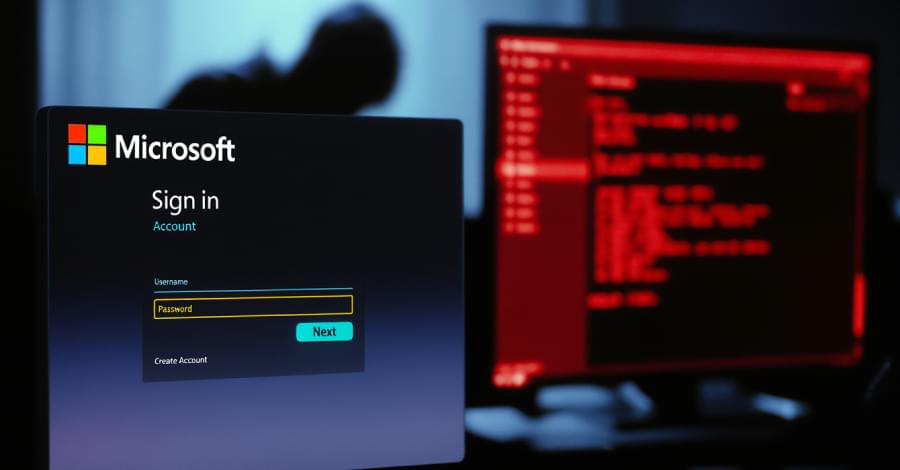And Spy on Emails.
Hundreds of thousands of users have downloaded malicious AI extensions masquerading as ChatGPT, Gemini, Grok and others, warn cybersecurity researchers at LayerX.

Questions to inspire discussion AI Model Performance & Capabilities.
🤖 Q: How does Anthropic’s Opus 4.6 compare to GPT-5.2 in performance?
A: Opus 4.6 outperforms GPT-5.2 by 144 ELO points while handling 1M tokens, and is now in production with recursive self-improvement capabilities that allow it to rewrite its entire tech stack.
🔧 Q: What real-world task demonstrates Opus 4.6’s agent swarm capabilities?
A: An agent swarm created a C compiler in Rust for multiple architectures in weeks for **$20K, a task that would take humans decades, demonstrating AI’s ability to collapse timelines and costs.
🐛 Q: How effective is Opus 4.6 at finding security vulnerabilities?


Cybersecurity researchers have discovered a fresh set of malicious packages across npm and the Python Package Index (PyPI) repository linked to a fake recruitment-themed campaign orchestrated by the North Korea-linked Lazarus Group.
The coordinated campaign has been codenamed graphalgo in reference to the first package published in the npm registry. It’s assessed to be active since May 2025.
“Developers are approached via social platforms like LinkedIn and Facebook, or through job offerings on forums like Reddit,” ReversingLabs researcher Karlo Zanki said in a report. “The campaign includes a well-orchestrated story around a company involved in blockchain and cryptocurrency exchanges.”

Want to make a career jump in 2026? If cybersecurity is on your radar, you’ll want to get prepared for the CISSP exam, one of the most prestigious credentials in the industry that signals you’re ready for high-level roles.
Now, you can learn right from the couch with the CISSP Security and Risk Management Training Bundle, on sale for just $19.99, with no coupon code required.
You don’t have to head back to school to get prepped for a cybersecurity career. The CISSP Security & Risk Management Training Bundle can prepare you in the comfort of your home. This bundle of eight courses teaches you how to protect computers, networks, and data from threats and helps you master the eight domains information security professionals should know.

Dutch telecommunications provider Odido is warning that it suffered a cyberattack that reportedly exposed the personal data of 6.2 million customers.
Odido is one of the largest mobile and telecommunications providers in the Netherlands, offering mobile, broadband, and television services to millions of customers nationwide. The company was formed in 2023 through the rebranding of T-Mobile Netherlands and Tele2 Netherlands.
The company says they detected the incident on the weekend of February 7 and launched an investigation with internal and external cybersecurity experts.

Codex-Spark is rolling out today as a research preview for ChatGPT Pro users in the latest versions of the Codex app, CLI, and VS Code extension. Because it runs on specialized low-latency hardware, usage is governed by a separate rate limit that may adjust based on demand during the research preview. In addition, we are making Codex-Spark available in the API for a small set of design partners to understand how developers want to integrate Codex-Spark into their products. We’ll expand access over the coming weeks as we continue tuning our integration under real workloads.
Codex-Spark is currently text-only at a 128k context window and is the first in a family of ultra-fast models. As we learn more with the developer community about where fast models shine for coding, we’ll introduce even more capabilities–including larger models, longer context lengths, and multimodal input.
Codex-Spark includes the same safety training as our mainline models, including cyber-relevant training. We evaluated Codex-Spark as part of our standard deployment process, which includes baseline evaluations for cyber and other capabilities, and determined that it does not have a plausible chance of reaching our Preparedness Framework threshold for high capability in cybersecurity or biology.

Cybersecurity researchers have discovered what they said is the first known malicious Microsoft Outlook add-in detected in the wild.
In this unusual supply chain attack detailed by Koi Security, an unknown attacker claimed the domain associated with a now-abandoned legitimate add-in to serve a fake Microsoft login page, stealing over 4,000 credentials in the process. The activity has been codenamed AgreeToSteal by the cybersecurity company.
The Outlook add-in in question is AgreeTo, which is advertised by its developer as a way for users to connect different calendars in a single place and share their availability through email. The add-in was last updated in December 2022.

Indian defense sector and government-aligned organizations have been targeted by multiple campaigns that are designed to compromise Windows and Linux environments with remote access trojans capable of stealing sensitive data and ensuring continued access to infected machines.
The campaigns are characterized by the use of malware families like Geta RAT, Ares RAT, and DeskRAT, which are often attributed to Pakistan-aligned threat clusters tracked as SideCopy and APT36 (aka Transparent Tribe). SideCopy, active since at least 2019, is assessed to operate as a subdivision of Transparent Tribe.
“Taken together, these campaigns reinforce a familiar but evolving narrative,” Aditya K. Sood, vice president of Security Engineering and AI Strategy at Aryaka, said. “Transparent Tribe and SideCopy are not reinventing espionage – they are refining it.”
